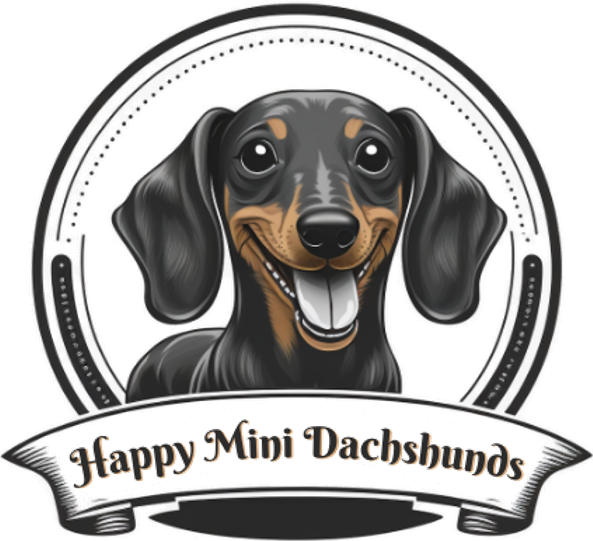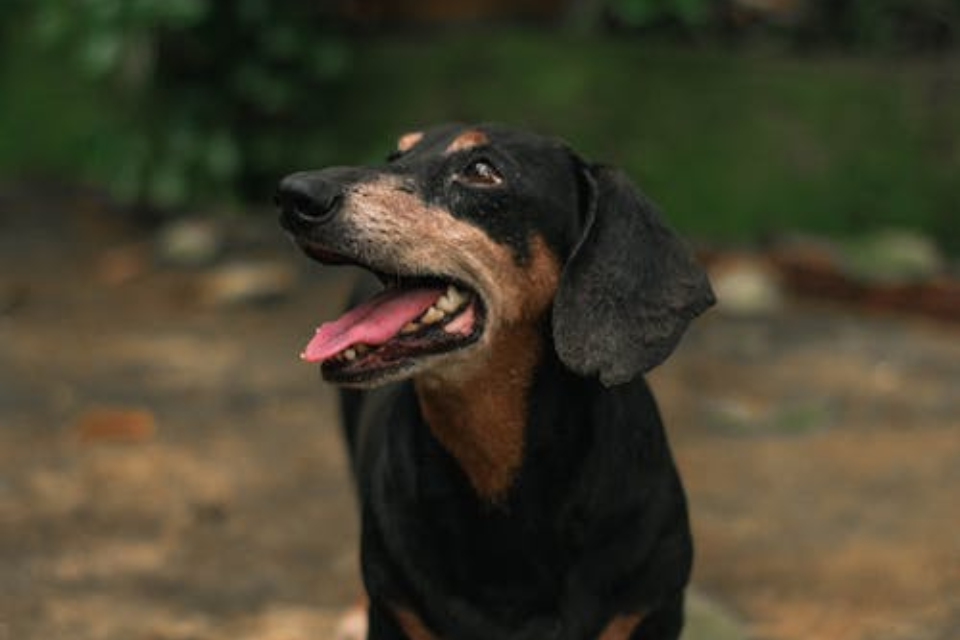Miniature Dachshunds are beloved pets known for their affectionate nature, intelligence, and unique appearance. As a dog owner, it’s essential to understand your furry friend’s development, and this includes their teeth. Just like humans, dogs go through a teething stage where they lose their baby teeth and develop adult teeth. This process can be a challenging and sometimes painful time for your pup. Therefore, it’s crucial to know when it starts and ends, and how to take care of your mini dachshund’s teeth during this period.
In this blog post, we’ll explore in-depth when mini dachshunds lose their baby teeth, common complications, and how to take care of their teeth during this crucial stage. We’ll also look at the importance of dental care for your mini dachshund throughout their lifetime. With the right knowledge and care, you can help your furry friend have a healthy and happy life. Let’s get started!
Key Takeaways:
- Mini dachshunds usually start losing their baby teeth at around 4 months old.
- Complications during the teething process can include discomfort, pain, and the risk of dental problems later in life.
- Proper dental care for your mini dachshund includes regular teeth cleaning, monitoring for any signs of dental problems, and feeding them a healthy diet.
When do mini dachshunds get their baby teeth?
Miniature Dachshunds, like other dog breeds, are born without teeth. However, their baby teeth or milk teeth, start to emerge at around 3 to 4 weeks of age. These tiny teeth are essential for your mini dachshund to eat and play, but they won’t last forever. It’s essential to pay attention to when they start losing their baby teeth, so you can provide the right care.
The average age for mini dachshunds to get their baby teeth is around 8 weeks, and by 12 weeks, they should have all their baby teeth. During this time, you may notice that your mini dachshund becomes more curious and likes to explore new things by mouthing or chewing. This behavior is entirely normal, and it’s their way of exploring the world around them.
It’s crucial to start dental care during this stage, as it sets the foundation for good oral hygiene in adulthood. Start by introducing your mini dachshund to toothbrushes and toothpaste designed for puppies. You can make it a fun game, and reward your pup with a treat or praise. Regular brushing, at least once a day, can help prevent plaque buildup and ensure your pup’s teeth remain healthy.
In some cases, your mini dachshund may experience teething discomfort, just like human babies. Signs of discomfort may include chewing on objects more frequently or drooling excessively. You can provide some relief by offering safe chew toys or a wet washcloth that has been frozen. These items can help soothe sore gums and reduce pain.
When do mini dachshunds lose their baby teeth?
Just like humans, mini dachshunds lose their baby teeth to make way for their permanent teeth. This process is entirely normal and usually starts when your mini dachshund is around 3 to 4 months old. The first teeth to fall out are typically the incisors, followed by the canine teeth, and then the premolars.
The process of losing baby teeth can take several weeks to months, and it’s not uncommon for adult teeth to start emerging before the baby teeth have fallen out completely. This can result in double teeth, where the baby tooth and adult tooth occupy the same space. Double teeth can cause discomfort or even lead to dental problems in the future, so it’s essential to monitor your mini dachshund’s teeth and seek veterinary advice if needed.
It’s also crucial to note that not all mini dachshunds lose their baby teeth at the same rate. Some may lose their teeth earlier or later than others, and the process can also depend on the individual dog’s genetics, diet, and overall health.
During this stage, it’s essential to continue practicing good dental hygiene and care for your mini dachshund’s teeth. Continue brushing their teeth with puppy toothpaste and a soft-bristled brush, and ensure they have safe chew toys to help promote healthy chewing and aid in the teething process.
If you notice that your mini dachshund is having difficulty eating or experiencing discomfort, it’s best to consult with a veterinarian. They can assess your mini dachshund’s dental health and determine if any intervention is needed.
Related: When Do Mini Dachshund Puppies Open Their Eyes?
Complications during the teething process
Teething can be a challenging time for both you and your mini dachshund. While most puppies go through teething without any issues, some may experience complications that require veterinary attention. Here are some of the potential complications to watch out for:
- Retained baby teeth: In some cases, a puppy’s baby teeth may not fall out as their adult teeth come in, leading to overcrowding and potential dental problems. This can be fixed through a simple dental procedure to remove the retained teeth.
- Broken or loose teeth: Puppies are known for their love of chewing, but too much chewing on hard objects can result in broken or loose teeth. This can be painful for your puppy and may require dental treatment.
- Inflamed gums: Teething can cause inflammation and tenderness in your puppy’s gums. This can make eating and chewing uncomfortable for them. Massaging their gums with a damp cloth or offering chilled teething toys can help soothe their discomfort.
- Swollen or bleeding gums: In some cases, teething can cause your puppy’s gums to become swollen or even bleed. If you notice excessive bleeding or swelling, it’s important to contact your veterinarian right away.
- Behavioral changes: Teething can also cause changes in your puppy’s behavior, such as increased chewing, drooling, and irritability. Providing them with plenty of appropriate chew toys and engaging in extra playtime can help alleviate their discomfort and prevent destructive chewing behavior.
Overall, while teething can be a challenging time for mini dachshunds and their owners, it’s important to monitor your puppy’s progress and seek veterinary attention if you notice any concerning symptoms or complications. With proper care and attention, your puppy will make it through the teething process and emerge with a happy, healthy smile.
Taking care of your mini dachshund’s teeth
V. Taking Care of Your Mini Dachshund’s Teeth
Now that you know when your mini dachshund will lose their baby teeth, it’s important to take proper care of their teeth to ensure they have healthy adult teeth. Here are some tips for taking care of your mini dachshund’s teeth:
- Brush their teeth regularly: Just like humans, dogs need to have their teeth brushed regularly to prevent tartar buildup and dental disease. You can use a dog-specific toothbrush and toothpaste to brush your mini dachshund’s teeth. Start by introducing the toothbrush gradually and make the experience positive by rewarding your dog with treats or praise.
- Provide dental chews and toys: Dental chews and toys are a great way to help keep your mini dachshund’s teeth clean. They work by scraping away plaque and tartar as your dog chews and plays with them. Look for products specifically designed for dental health and ensure they are appropriately sized for your dog.
- Schedule regular dental check-ups: Regular dental check-ups with your veterinarian are important for catching any dental issues early on. During these check-ups, your veterinarian can also perform professional teeth cleaning to remove any buildup of tartar and plaque.
- Monitor their diet: Diet plays a crucial role in dental health, so it’s important to feed your mini dachshund a balanced diet that promotes dental health. Avoid feeding them sugary or starchy foods, and opt for high-quality dog food that contains dental-friendly ingredients.
- Address dental issues promptly: If you notice any signs of dental issues, such as bad breath, bleeding gums, or loose teeth, take your mini dachshund to the veterinarian immediately. Dental issues can be painful and cause further complications if left untreated.
Taking proper care of your mini dachshund’s teeth can help ensure they have healthy adult teeth and avoid dental issues later on in life. By following these tips, you can help your furry friend maintain a healthy and happy smile.
Related: When to Neuter a Mini Dachshund?
Conclusion
In conclusion, teething is a natural process that all puppies go through, including Mini Dachshunds. It is important for owners to be aware of the signs of teething and the timeline of when their puppy’s baby teeth will come in and fall out. Complications during the teething process can occur, such as retained baby teeth, which can lead to dental problems in the future if not addressed.
Taking care of your Mini Dachshund’s teeth is crucial for their overall health and well-being. Regular teeth brushing, dental check-ups, and providing appropriate chew toys can help prevent dental issues and keep your furry friend’s teeth and gums healthy.
Remember to always consult with your veterinarian if you have any concerns or questions about your Mini Dachshund’s teething process or dental health.
By understanding the teething process and taking proactive steps to care for your Mini Dachshund’s teeth, you can help ensure a happy and healthy life for your furry companion.

